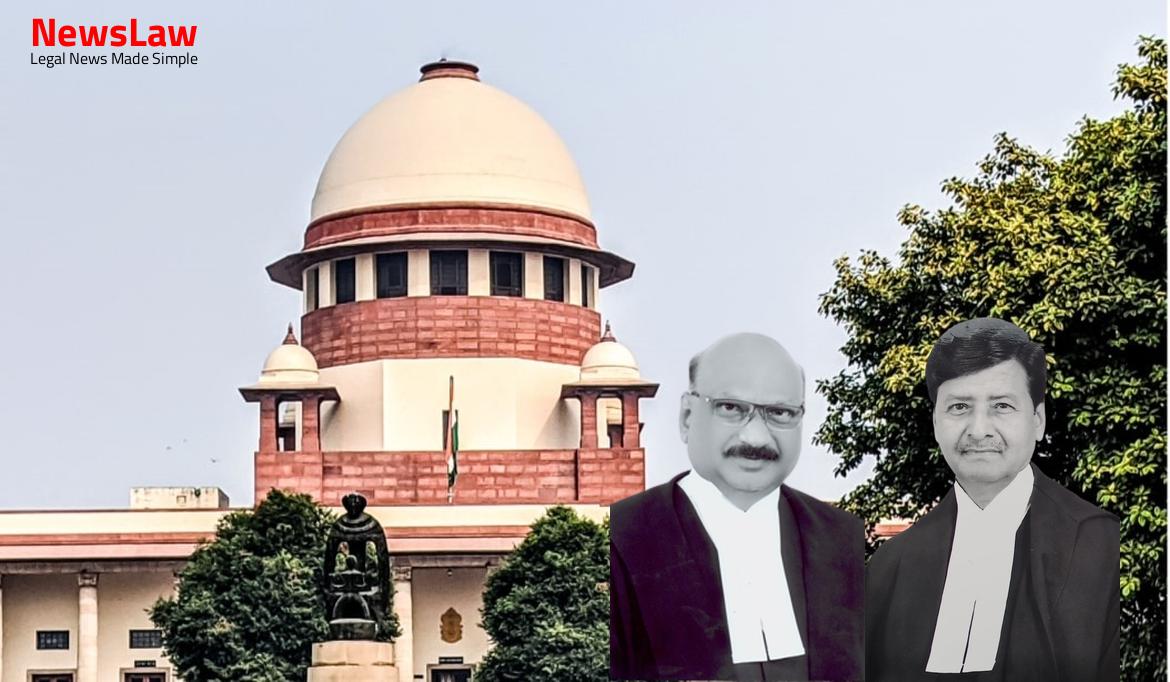In a significant legal ruling by the Supreme Court of India, the case of State vs. Accused has garnered attention for its focus on the crucial concept of a complete chain of evidence. The judgment underscores the necessity of proving guilt beyond a reasonable doubt, setting a precedent for future criminal cases. This case has sparked discussions on the standards of evidence required to establish the guilt of the accused.
Facts
- Informant Abdul Haq reported a dead body found beneath a culvert near the railway line in Kota.
- Witness Saroti Bai Bheel mentioned seeing individuals placing the body on the railway line.
- Witness Hemraj and others related to various memos were not produced during the proceedings.
- Police Head Constable Fazlur Rahman, who took the written report for FIR registration, was not produced as a witness.
- The identified deceased person was Bajranglal as per witness accounts.
- The High Court found the chain of circumstantial evidence produced by the prosecution to be doubtful and contradictory.
- Many prosecution witnesses were declared as hostile.
- Several important and relevant witnesses were not produced by the prosecution without any valid reason.
Also Read: Judgment: Dispute Resolution in Infrastructure Contracts
Analysis
- The prosecution failed to produce several key witnesses including the person who identified the dead body of Bajranglal.
- Witnesses Hemraj and Manoj Vijay were not presented in court.
- The timing discrepancies in the arrest and subsequent recovery proceedings were not justified by the prosecution.
- The Investigating Officer’s statement regarding lack of blood marks in the auto raised doubts on its involvement in transporting the deceased’s body.
- Several key prosecution witnesses were declared hostile, leading to material contradictions in their statements.
- The High Court found the circumstantial evidence produced by the prosecution to be doubtful and contradictory.
- The judgment referred to established legal principles regarding circumstantial evidence and the need for a complete chain of evidence to prove guilt.
- Numerous important witnesses were not produced by the prosecution, weakening the case against the accused.
- The High Court’s decision to acquit the accused was based on the lack of a complete chain of events proving guilt beyond a reasonable doubt.
- The distinction between ‘may be proved’ and ‘must be or should be proved’ is crucial in criminal cases.
- It is necessary for the court to ensure that the accused is not merely possibly guilty, but must be shown to be guilty beyond reasonable doubt.
- The facts established should only support the hypothesis of the accused’s guilt, without any reasonable explanation for innocence.
- The circumstances should conclusively point towards the guilt of the accused and exclude all other possible hypotheses.
- There must be a complete chain of evidence leaving no reasonable doubt about the accused’s guilt.
Also Read: Dismissal Upheld in Disciplinary Proceedings of CISF Constable
Case Title: THE STATE OF RAJASTHAN Vs. MAHESH KUMAR @ MAHESH DHOULPURIA .
Case Number: Crl.A. No.-002059-002059 / 2013



